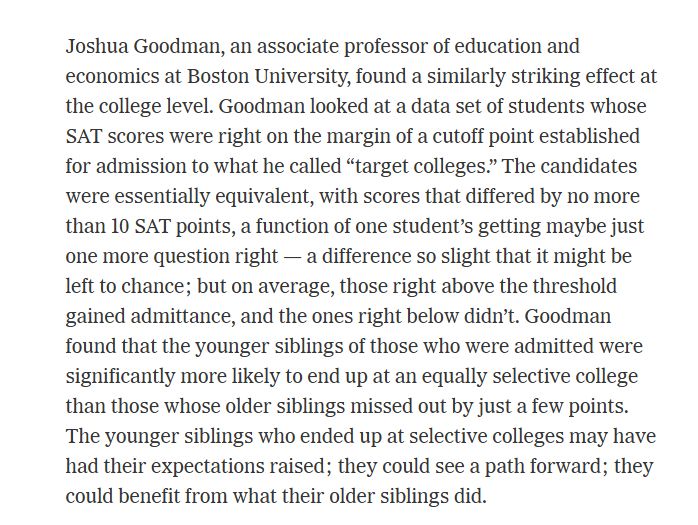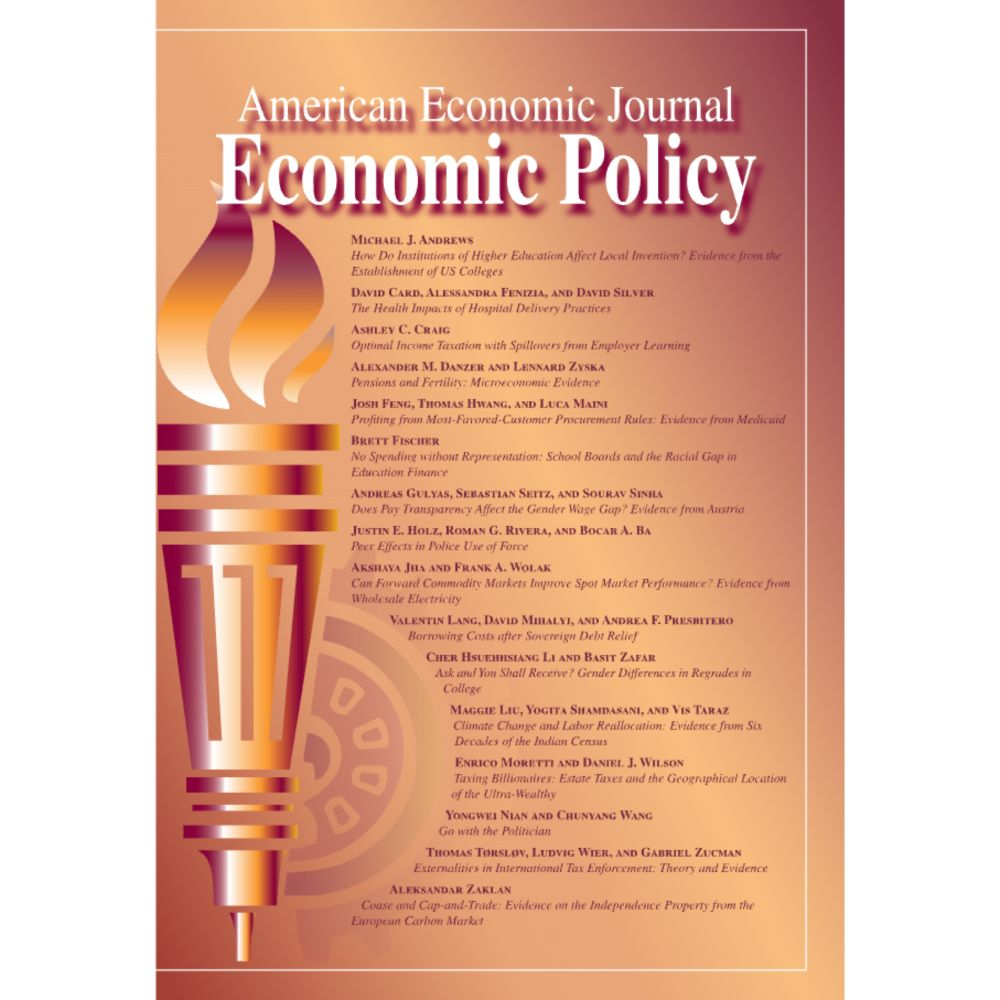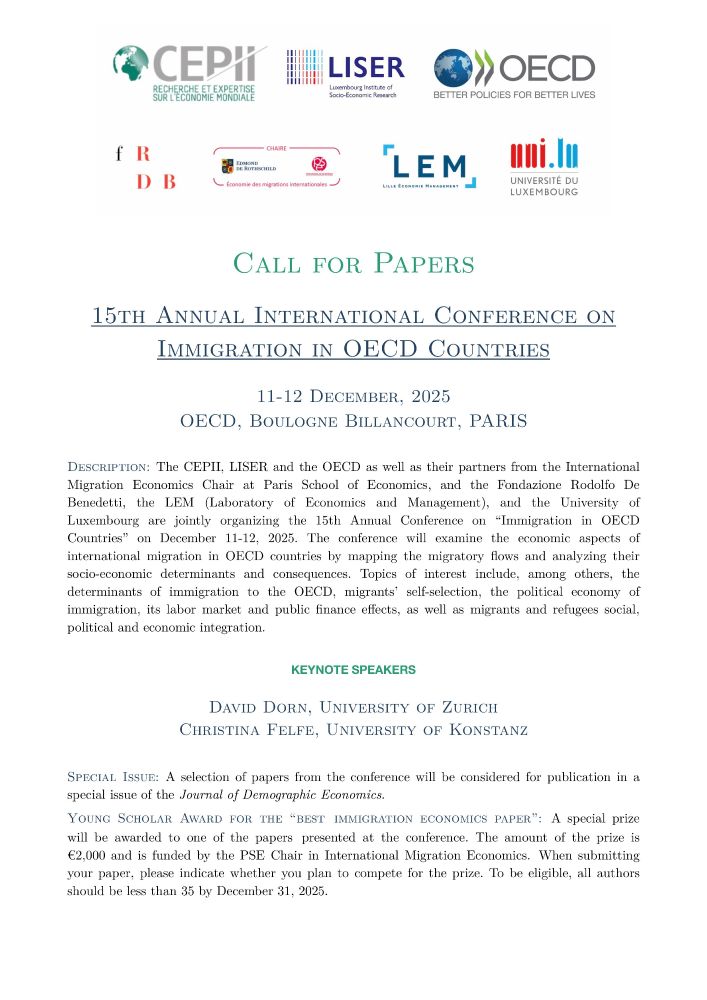
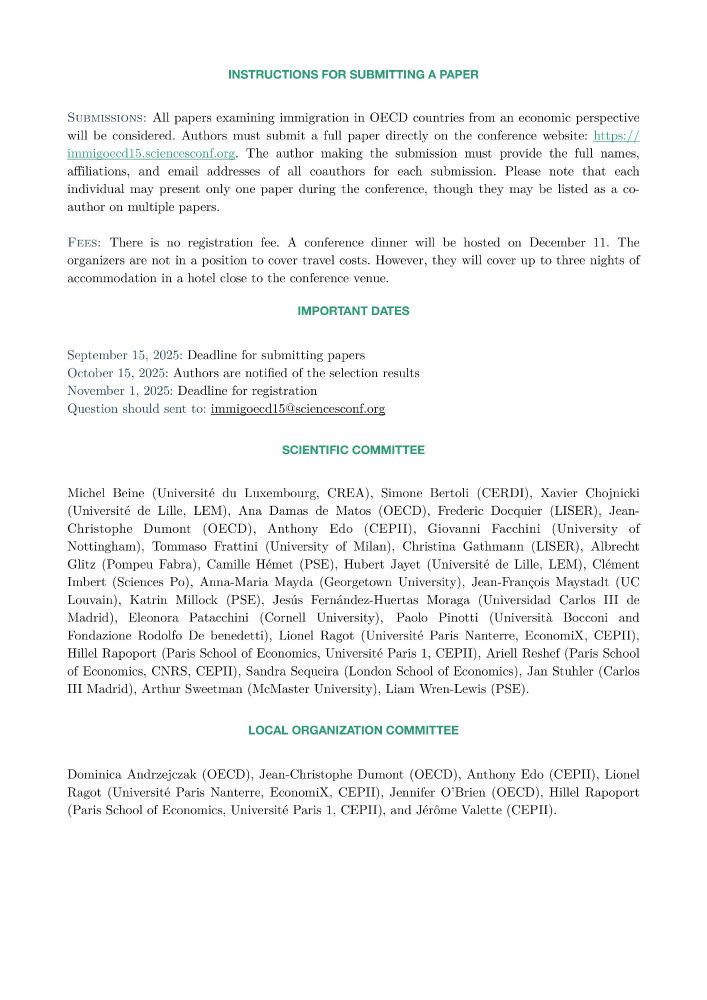
📣 Call for Papers 📣
🌐 15th Annual International Conference on #Immigration in OECD Countries - Dec. 11- 12.
🗣️ With Keynotes from @christinafelfe.bsky.social & @profdaviddorn.bsky.social
⏳ Submit by September 15th
🔗 immigoecd15.sciencesconf.org
#EconSky #EconConf #Migration
06.08.2025 13:02 — 👍 7 🔁 7 💬 1 📌 1
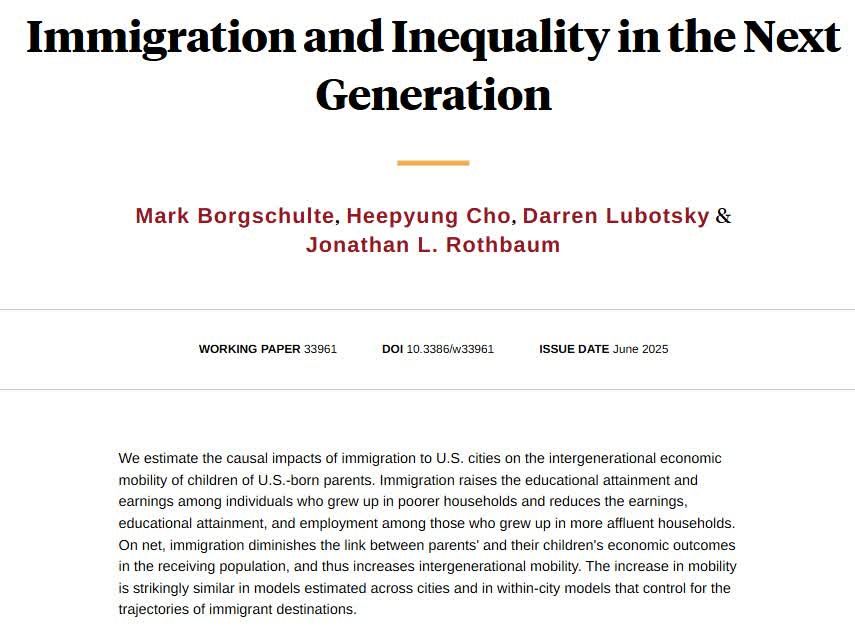
New evidence that immigration raises intergenerational mobility, from Mark Borgschulte, Heepyung Cho, Darren Lubotsky, and Jonathan L. Rothbaum https://www.nber.org/papers/w33961
04.07.2025 15:00 — 👍 8 🔁 3 💬 0 📌 0
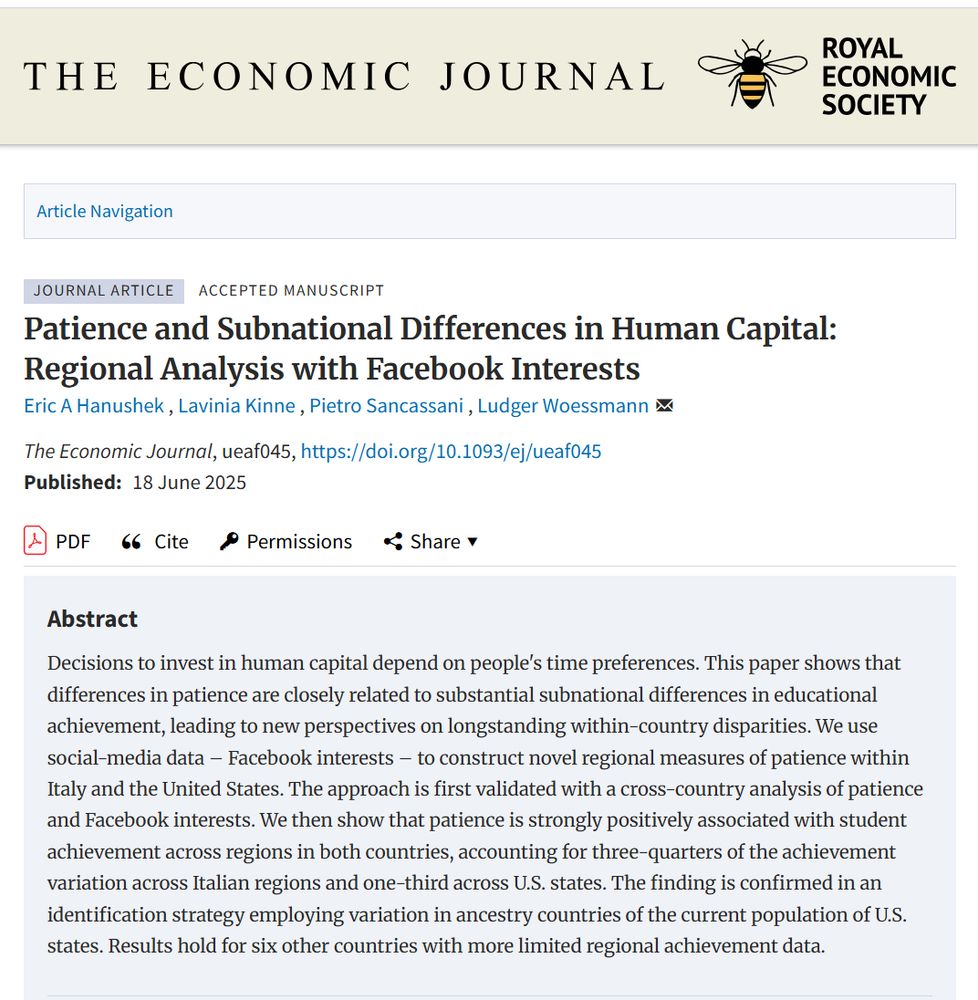
📢 New paper in the Economic Journal (@resmedia.bsky.social):
👉 Differences in patience can account for substantial regional variation in educational achievement within countries
Data on Facebook interests allow us to derive regional measures of patience
academic.oup.com/ej/advance-a...
A 🧵 1/9
23.06.2025 04:57 — 👍 44 🔁 16 💬 1 📌 1
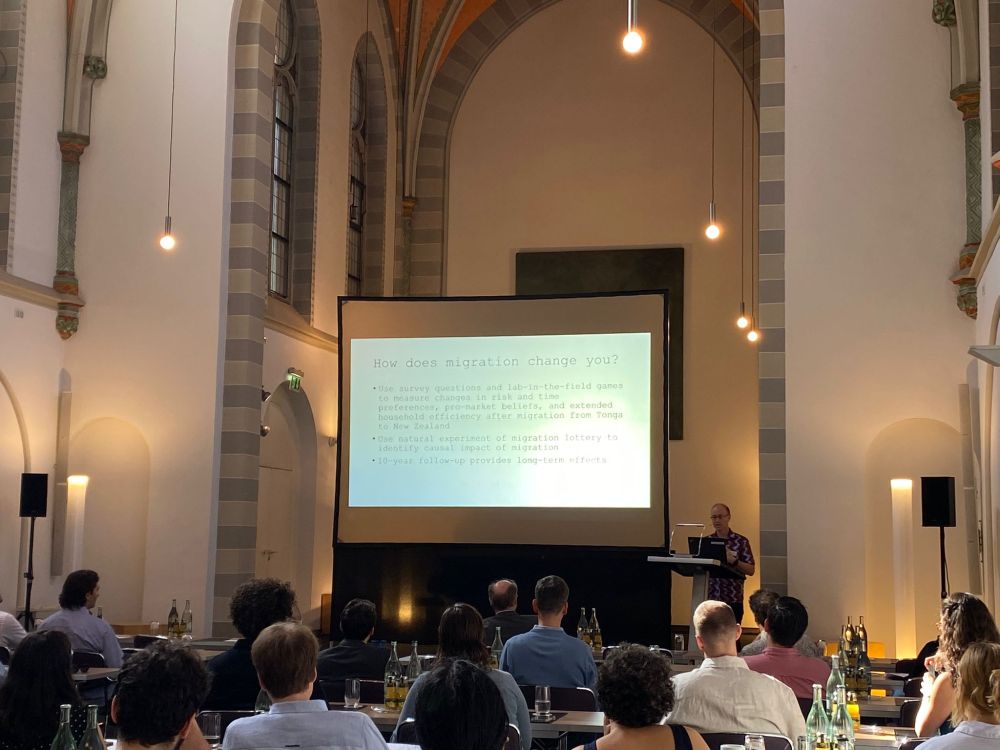
We hosted the SEEDEC symposium together with
@fair-cele.bsky.social, organized by @vincentsomville.bsky.social. We enjoyed keynotes from
@ggenicot.bsky.social and David McKenzie, lively discussions and great presentations. Thank you all who participated!
16.06.2025 08:20 — 👍 2 🔁 4 💬 0 📌 1
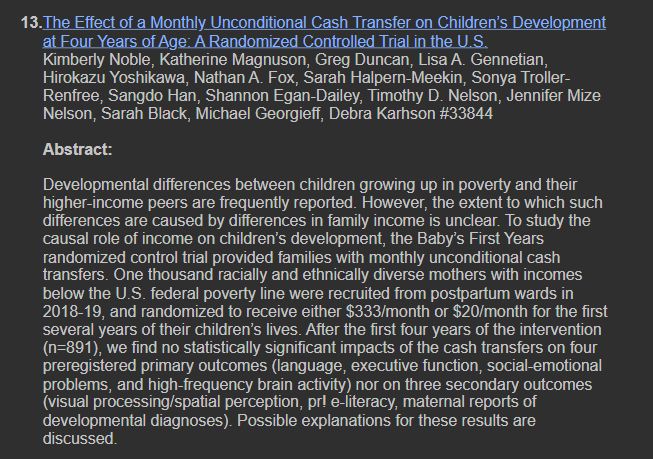
Giving +$313/mo ($3756/yr) in unconditional cash to low-income U.S. families with new babies doesn't seem to improve the children's development at age 4, per multi-city field experiment by child poverty & development researchers.
Relevant to debates on CTC & baby bonus
www.nber.org/papers/w3384...
27.05.2025 14:22 — 👍 51 🔁 14 💬 5 📌 4
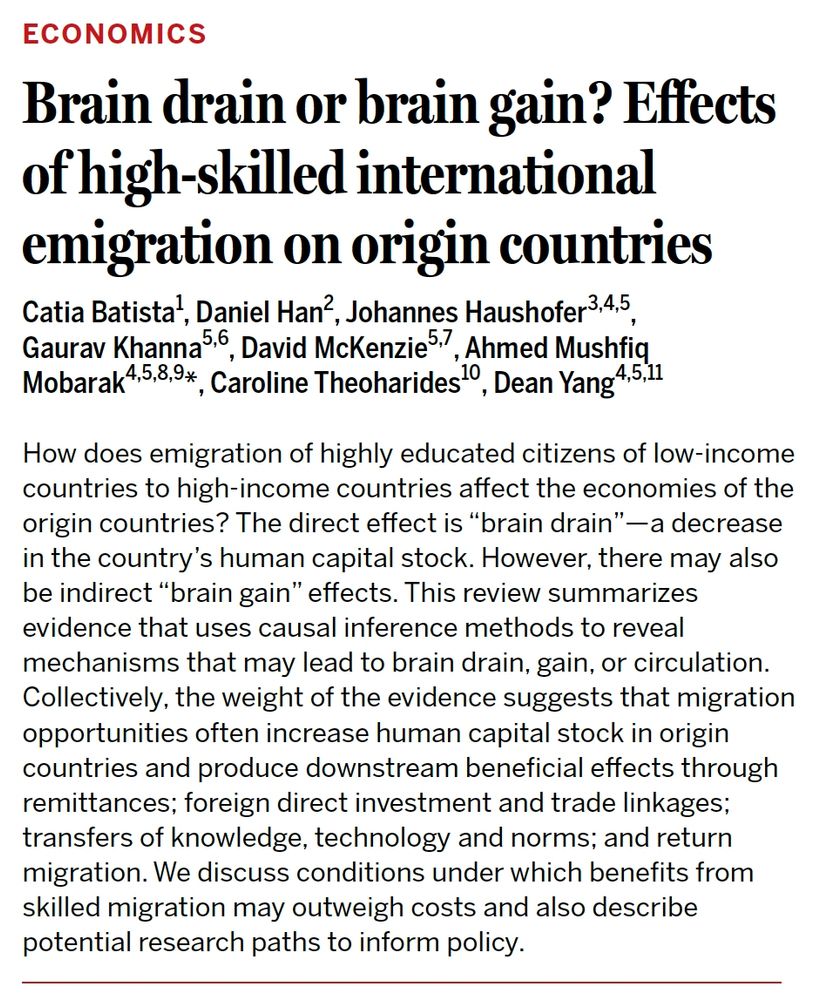
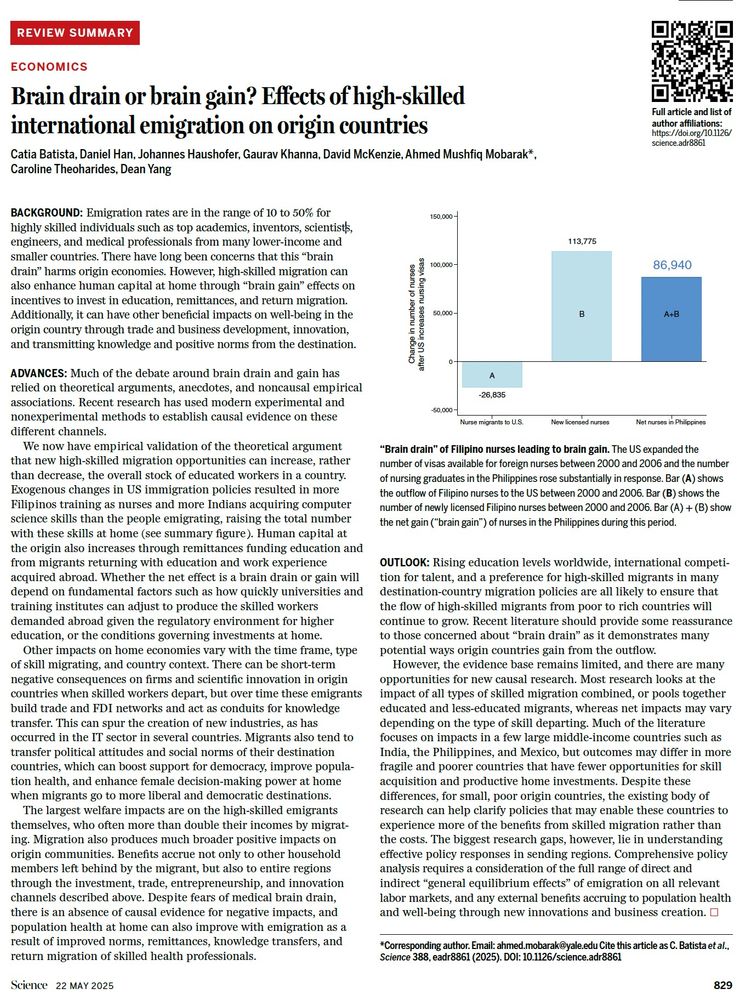
Is it "good" or "bad" when skilled people leave low-income countries? We summarized the evidence in favor of "brain gain" vs. "brain drain": www.science.org/doi/epdf/10....
Ungated PDF: johanneshaushofer.com/research
22.05.2025 18:28 — 👍 187 🔁 66 💬 6 📌 5

A cityscape at twilight, from the middle of a street.
1. Can you figure out where I was standing when I took this picture?
ChatGPT could. Given the photograph (scrubbed of all header information), the new chain of thought model, ChatGPT o.3, was able to pinpoint the location with a few meters.
29.04.2025 04:49 — 👍 322 🔁 98 💬 52 📌 35
This was a productive episode to do since I remain with the thought that the most important area of science we can be engaged in today is the science of scaling, or the science of using science.
09.04.2025 14:24 — 👍 13 🔁 4 💬 1 📌 1
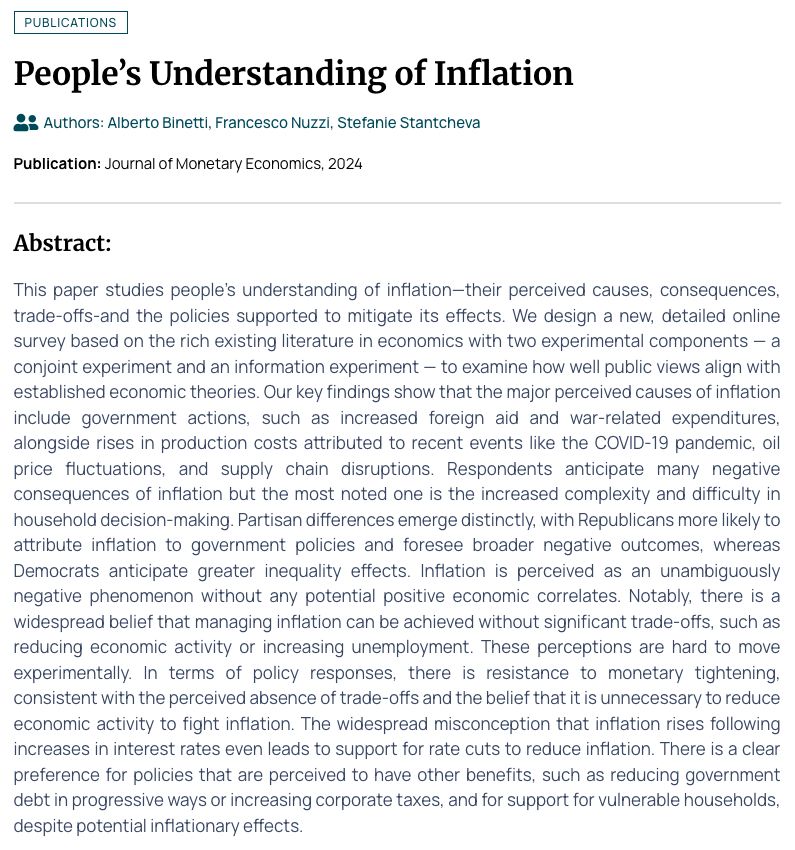
Understanding causality vs. correlation is genuinely hard especially on complex topics like inflation. Our research finds that 60% of Americans think high interest rates cause high inflation & support rate cuts to fight it. But high rates usually respond to inflation,not cause it
21.03.2025 14:56 — 👍 187 🔁 39 💬 10 📌 9
What better way to start using this platform than to tell you about our Visiting Program on Migration 🌐. Every month a migration expert visits LISER for a few days. Among other things, we made short videos about their latest research, check them out here 👇:
@liser.lu @liser-cb.bsky.social
11.03.2025 16:17 — 👍 10 🔁 8 💬 1 📌 0
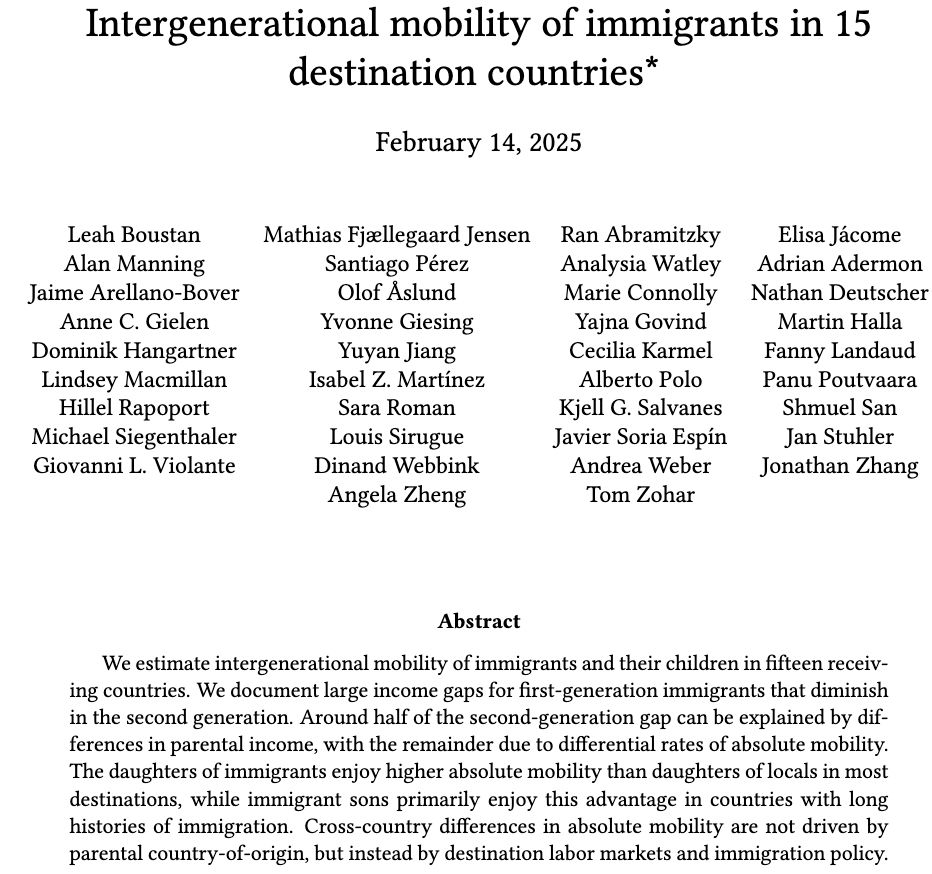
1/ 🚨 New paper! 🚨
How do the economic trajectories of children of immigrants vary across 15 high-income countries? We study intergenerational mobility of immigrants, using individual-level linked parent-child data across Europe, North America, and beyond. 🧵👇 #EconSky
21.02.2025 11:44 — 👍 112 🔁 54 💬 4 📌 7
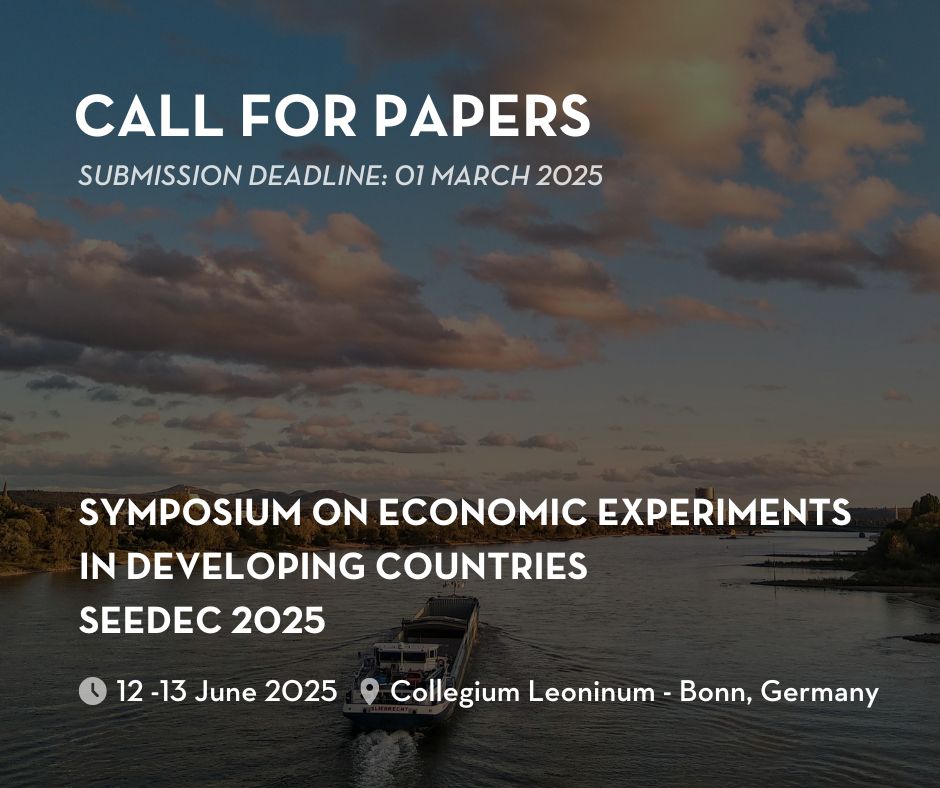
❗Deadline Approaching for SEEDEC 2025!
Don't miss your chance to register for the Symposium on Economic Experiments in Developing Countries (SEEDEC 2025) in Bonn, Germany!
⏳ Registration deadline: March 1, 2025
🔗 www.nhh.no/en/research-... @vincentsomville.bsky.social
04.02.2025 08:29 — 👍 5 🔁 5 💬 0 📌 4
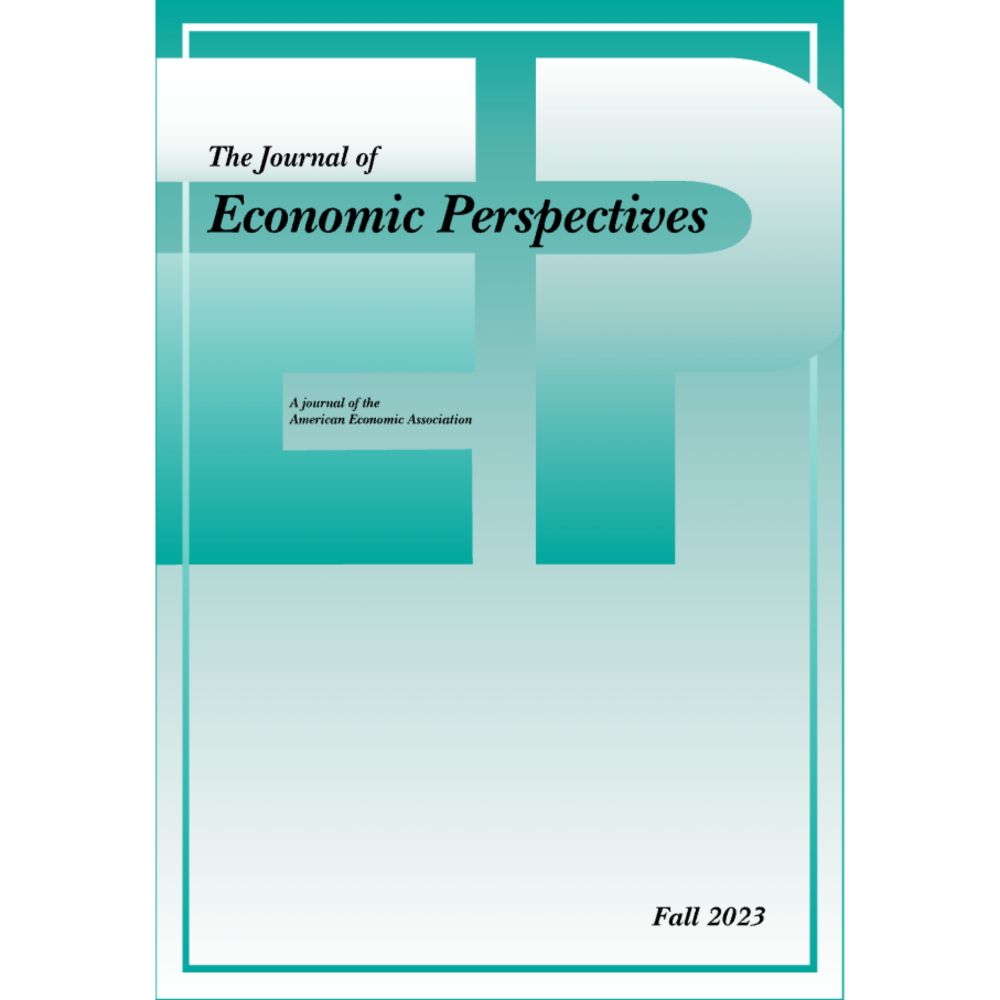
Journal of Economic Perspectives
Vol. 39 No. 1 Winter 2025
Our practical guide to shift-share IV is now out in the JEP!
www.aeaweb.org/issues/793
(Ungated version: www.dropbox.com/scl/fi/el9yn...)
13.02.2025 15:23 — 👍 203 🔁 55 💬 4 📌 4
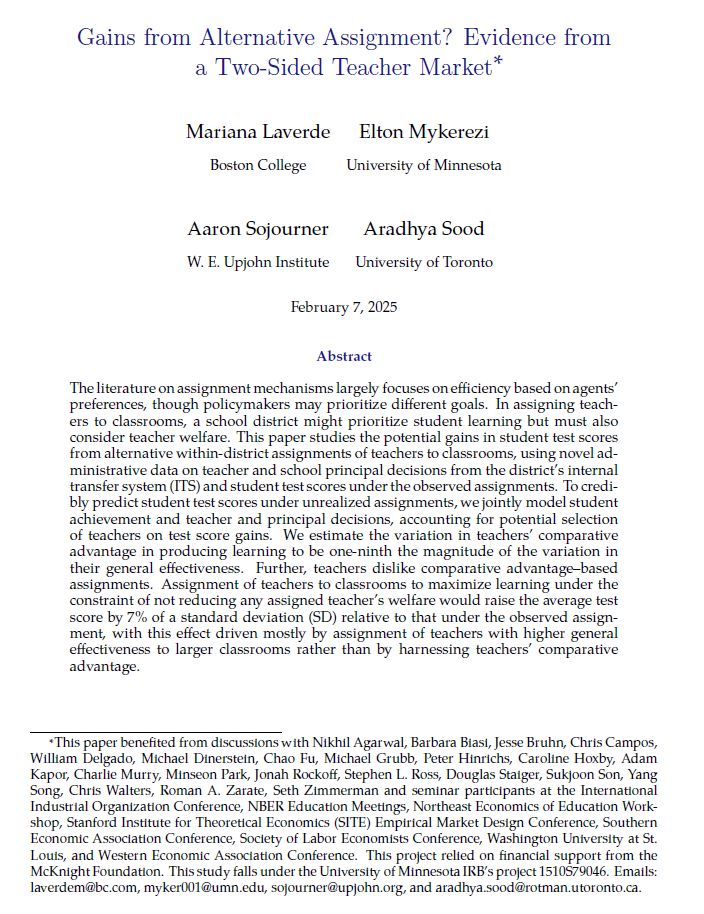
How much student learning do you think a school district could gain just by better assigning its teachers to schools?
Consider a quite politically-feasible change. Do not let district make any assigned teacher worse off, nor change teacher hiring, nor compensation, nor the students.
New evidence!
10.02.2025 15:40 — 👍 36 🔁 11 💬 2 📌 3
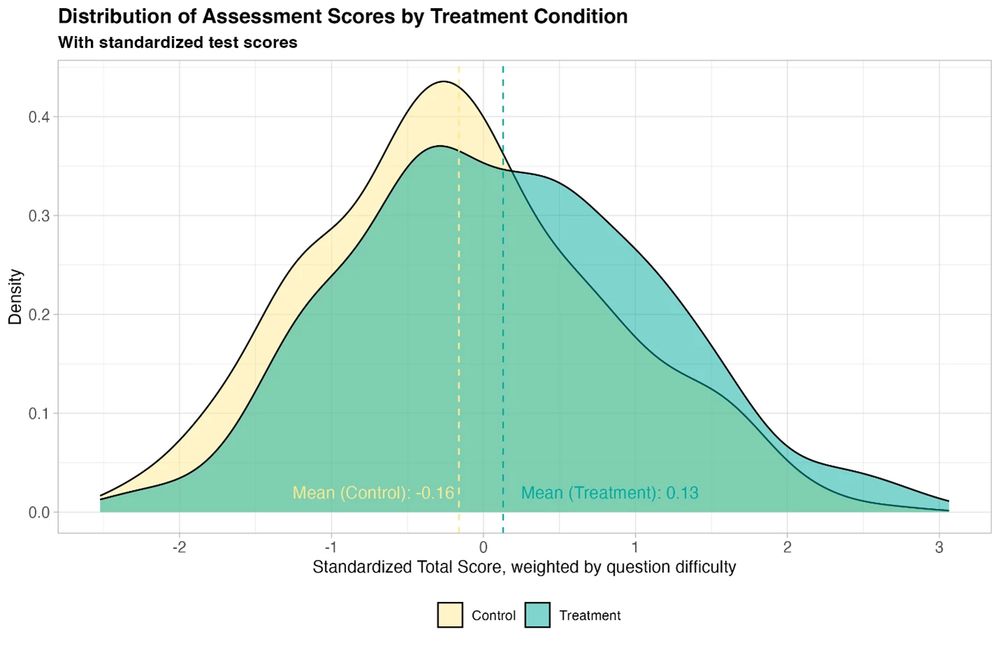
In case you missed it on the other site: fascinating new [preliminary] RCT evidence that use of chatgpt as an after-school tutoring method in Nigeria *dramatically* shifted learning outcomes #econsky
blogs.worldbank.org/en/education...
16.01.2025 16:10 — 👍 32 🔁 7 💬 0 📌 1
I'm very excited to join the Brooks School of Public Policy and the Department of Economics at @cornelluniversity.bsky.social in January. And we're hiring pre-doc fellows in development economics! Great 1–2 year PhD preparation. Please share widely! cornell.wd1.myworkdayjobs.com/CornellCaree...
09.12.2024 23:49 — 👍 123 🔁 18 💬 14 📌 1
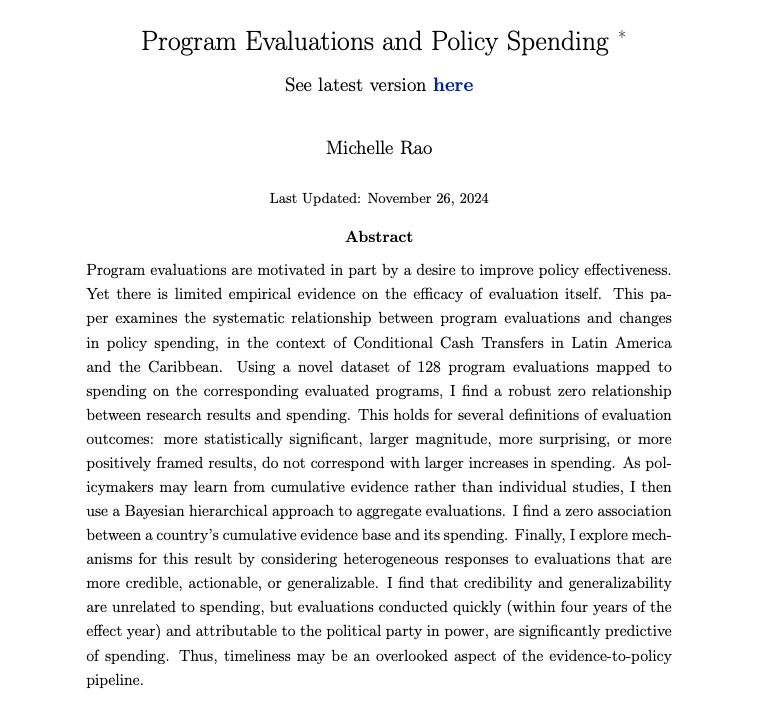
We still have a relatively poor understanding of the relationship between evidence and policy. Program evaluation in particular is often motivated by a desire to make policy better. But how effective is program evaluation itself?Michelle Rao's JMP tackles this question. www.michellerao.com/research
27.11.2024 05:42 — 👍 460 🔁 153 💬 29 📌 52
Come work with us on international educational migration! 🌍 We’re hiring a #PreDoc at @eegmpi.bsky.social in Bonn.
Join a team of fantastic researchers to work on an ambitious RCT with real-world impact.
📢 We are excited to hear from you! career.coll.mpg.de/jobposting/c...
#econ_ra #EconSky
25.11.2024 09:09 — 👍 5 🔁 2 💬 0 📌 0
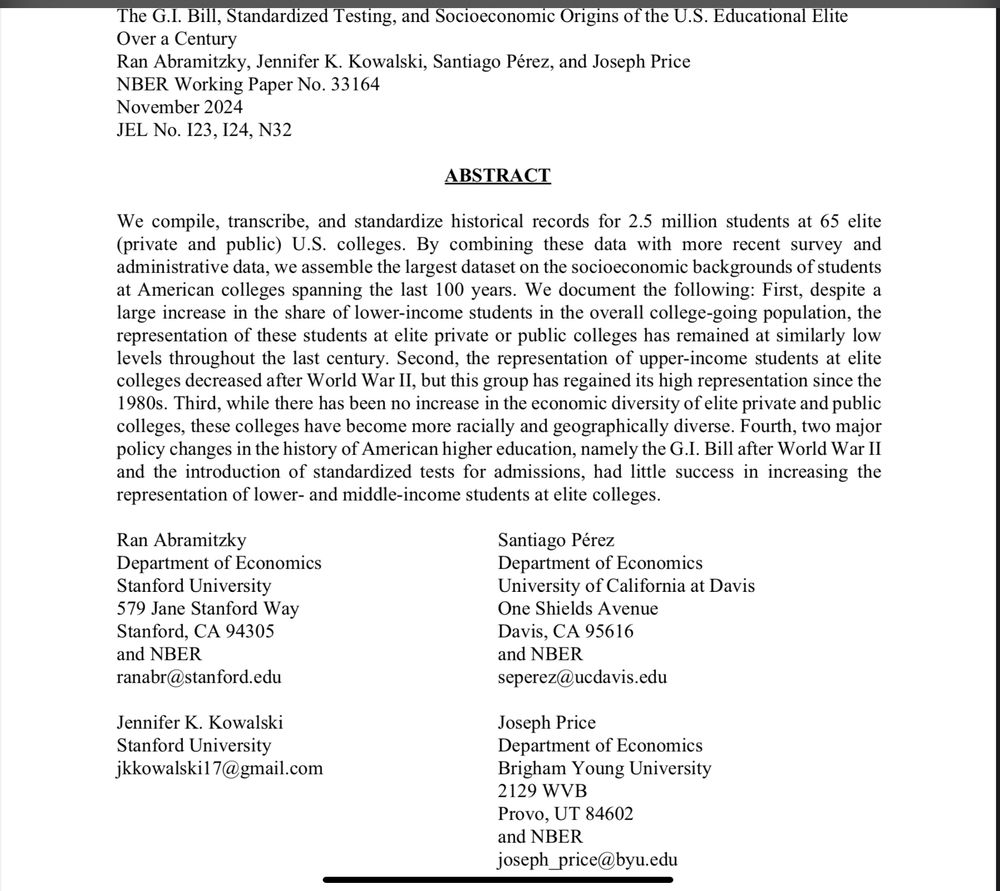
The G.I. Bill, Standardized Testing, and Socioeconomic Origins of the U.S. Educational Elite Over a Century
Ran Abramitzky, Jennifer K. Kowalski, Santiago Pérez, and Joseph Price
NBER Working Paper No. 33164
November 2024
JEL No. 123, 124, N32
ABSTRACT
We compile, transcribe, and standardize historical records for 2.5 million students at 65 elite (private and public) U.S. colleges. By combining these data with more recent survey and administrative data, we assemble the largest dataset on the socioeconomic backgrounds of students at American colleges spanning the last 100 years. We document the following: First, despite a large increase in the share of lower-income students in the overall college-going population, the representation of these students at elite private or public colleges has remained at similarly low levels throughout the last century. Second, the representation of upper-income students at elite colleges decreased after World War II, but this group has regained its high representation since the 1980s. Third, while there has been no increase in the economic diversity of elite private and public colleges, these colleges have become more racially and geographically diverse. Fourth, two major policy changes in the history of American higher education, namely the G.I. Bill after World War II and the introduction of standardized tests for admissions, had little success in increasing the representation of lower- and middle-income students at elite colleges.
Holy crap this is an astounding piece of historical research
Will post ungated link later today unless someone beats me to it
www.nber.org/system/files...
18.11.2024 12:47 — 👍 1393 🔁 473 💬 67 📌 75
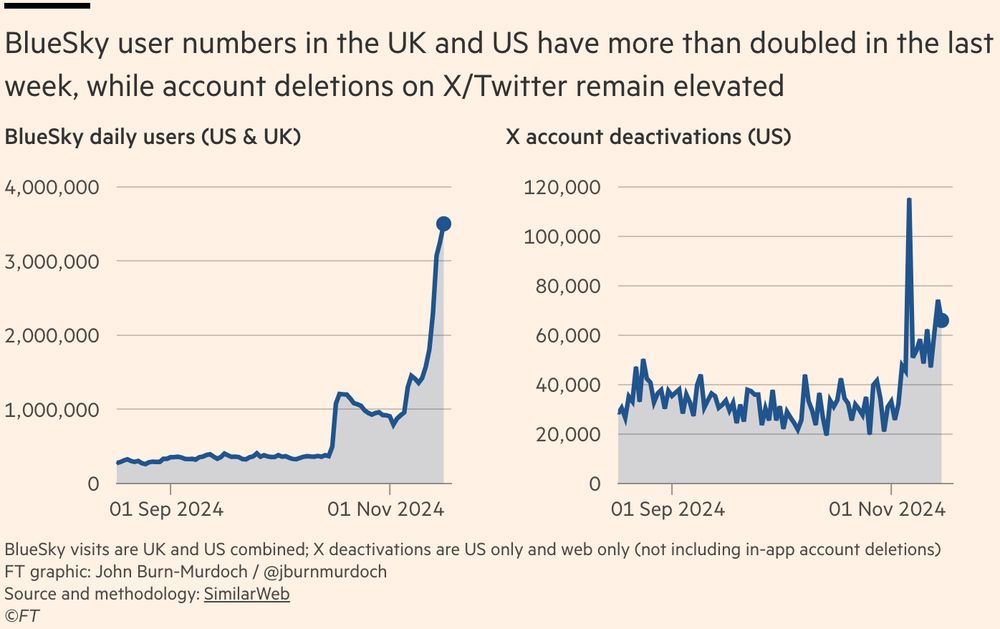
This is really getting quite remarkable
• BlueSky user numbers have doubled in the past week and now total 3.5 million across US & UK 🚀
• Number of people deleting their X/Twitter account remains way up
And the next chart is particularly notable...
19.11.2024 21:22 — 👍 5819 🔁 1411 💬 133 📌 170
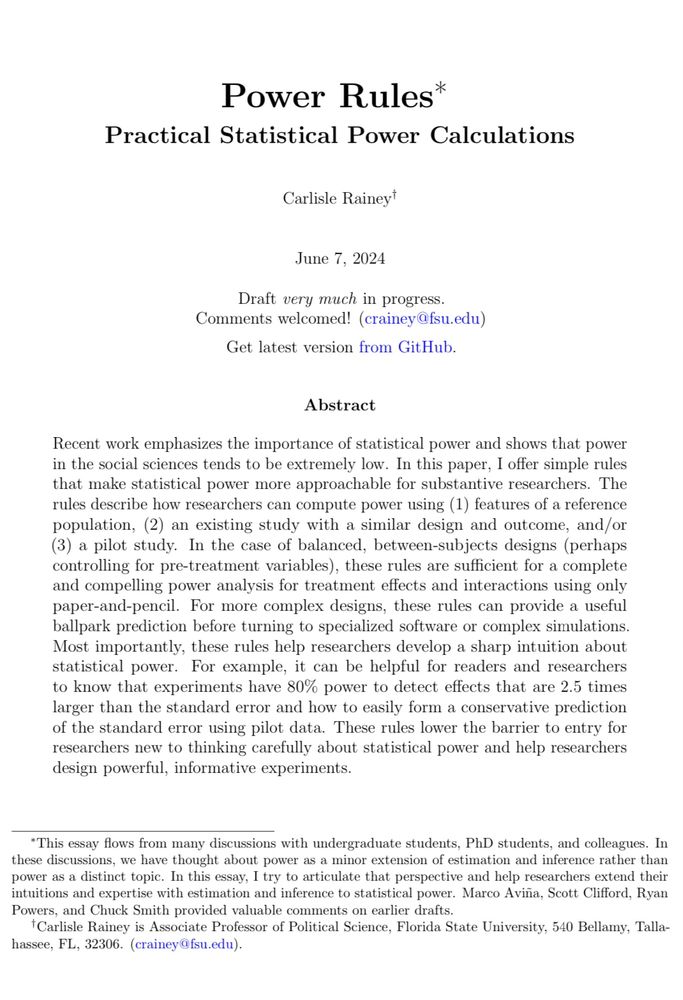
"Power Rules: Practical Statistical Power Calculations"
Among other things, I write about how researchers might use pilot data to inform power calculations.
Feedback welcomed!
www.carlislerainey.com/power-rules/...
17.11.2024 20:59 — 👍 54 🔁 11 💬 4 📌 3
Associate Professor of Public Policy at the University of Michigan Ford School of Public Policy | co-editor Journal of Public Economics | affiliate NBER, J-PAL, and Blueprint
www.sarahcohodes.com
Econ Assistant Prof at Yale SOM. Education, innovation, gender. Born & raised in Monopoli, Italy. Mom of 3.
Professor of Education and Economics. Former high school humanities teacher. Proud papa & volunteer soccer coach. Reading as much as I can about climate change. www.matthewakraft.com
currently: chloegibbs.com; economist interested in children & families (@nber.org, @iza.org)
formerly: White House CEA 22-23, & (way) before, bluegrass state, ND undergrad, UMich Ford, UChicago Harris, & UVA
always: mom x4, ie at some event/activity
Education policy at Urban Institute.
Devoted to development & use of evidence to improve educational policy, practice, & outcomes. Evidence Use in Education, LLC. Past president https://aefpweb.org/. Co-editor: http://rb.gy/ipo4d5 & https://eric.ed.gov/?id=ED603550
researchpractice.org
Associate Professor of Economics and Education at Teachers College, Columbia University
Development economist, enthusiast
www.alexeble.com
Economist of Education UTexas, LBJ School, College of Education
www.jeffdenning.com
(hEH-muh za-MA-roh) Education and Labor Economist. Professor at the University of Arkansas. Working a lot on Teacher Labor Markets these days. Mom. Hufflepuff
Development Economist in Stockholm. Past: Oxford Econ, UCL and Delhi Univ. Mostly posts about Econ, India, education, miscellanea. #econsky
Website: www.abhijeetsingh.dev
Anything I ever do is to avoid doing something else
Stanford Economics PhD Student
lavaredmonds.com
Redhead, NC native, and higher education researcher. He/him. https://chrisbennettedu.com
Assistant Professor of Education Policy & Inequality, Vanderbilt University.
Post mainly about old doggos & being a new dad. NBA & ultimate frisbee fan.
https://www.markjchin.com/
🏳️🌈 Educational researcher focused on curriculum, assessment, accountability, public opinion, and the impact of COVID on education. Professor at USC Rossier. Co-director of USC EdPolicy Hub. These are my views, not those of my employer. 🏳️🌈
Faculty @UChicago @HarrisPolicy | Director @MiiELab | Education, children, joy | she/they | #checkyourself | Grateful | on threads: @anjaliadukia
http://anjaliadukia.com
Professor of Economics & Education at Teachers College. Affiliations: NBER, CCRC, former Senior Economist at CEA (2022-23). This is a personal account.
Who am I? I wonder sometimes and then remind myself here, http://caldercenter.org & here, http://cedr.us. Views are usually mine, & are not necessarily reflective of anything.
Economist working on education policy
Assistant Professor of Education Policy, Organization, & Leadership, University of Illinois Urbana-Champaign. Former middle school science teacher in Oakland and Los Angeles.
https://www.paul-bruno.com/
https://www.last.fm/user/pabruno








